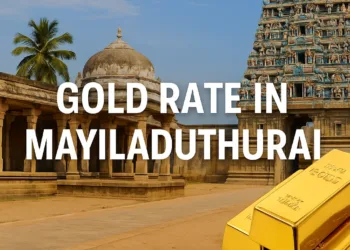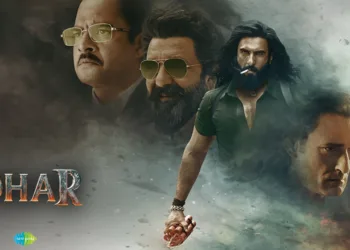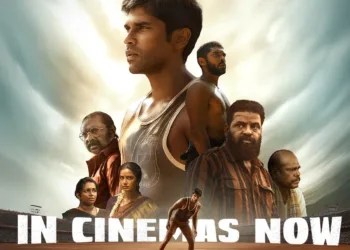The world of My Hero Academia continues to evolve long after its 431-chapter conclusion, thanks to creator Kohei Horikoshi’s dedication to expanding his superhero universe through periodic revelations and updates. Among these recent additions, one particular detail has sparked a fascinating reinterpretation of the entire series: Deku’s role as a teacher of Hero Studies and History. This seemingly minor career update has profound implications for how fans might understand the narrative structure of the entire story.
What if the journey we’ve followed for years—from Deku’s quirkless beginnings to his final battle and beyond—wasn’t simply a chronological retelling but rather an educational lesson delivered by Professor Midoriya to a new generation of heroes? This perspective transforms every flashback, every emotional moment, and every hard-won victory into something more purposeful: a curriculum designed to prepare future heroes by learning from the past.
As fans revisit the series with this lens, Deku’s consistent narration throughout the manga and anime takes on new significance, potentially reframing one of the most beloved superhero stories in modern anime as not just a coming-of-age tale, but a thoughtful retrospective from someone who has already completed his journey and now guides others through theirs.
Table of contents
- My Hero Academia Student to Teacher: Deku’s Educational Legacy
- A Curriculum of Heroes: Analyzing My Hero Academia as Lesson Plans
- Beyond the Classroom: The Broader Implications of Deku’s Teaching Role
- My Hero Academia Arcs as Potential Lesson Topics
- Character Studies in Deku’s Hero History Curriculum
- FAQs
My Hero Academia Student to Teacher: Deku’s Educational Legacy
Horikoshi’s revelation that Deku becomes a teacher specializing in Hero Studies and History creates a compelling framework for understanding the entire narrative structure of My Hero Academia. Throughout the series, Deku’s voice-over narration has been a consistent element, often providing context, emotional reflection, and foreshadowing. This narrative device, previously understood as simple storytelling, now potentially serves a more specific purpose—Deku could be recounting these events as lessons for his students.
The series begins with Deku explaining the emergence of quirks, starting with the luminescent baby in China—the first documented quirk. This historical framing aligns perfectly with someone teaching a comprehensive history course. Rather than just setting the stage for viewers, this introduction could represent Deku establishing the historical context for his students before delving into more personal case studies.
This perspective transforms the emotional weight of key moments throughout the series. When Deku recounts his own quirkless struggles, All Might passing down One For All, or the various battles against the League of Villains, he isn’t simply reminiscing—he’s providing valuable insights for future heroes. Each triumph and failure becomes a teaching moment, demonstrating the practical applications of heroism beyond theoretical knowledge.

The educational framing also explains why Deku’s narration often includes information he couldn’t possibly know firsthand. His comprehensive understanding of events that occurred outside his presence makes sense if he’s speaking from a future perspective, having gathered this knowledge through research and conversations with other heroes who were present. This approach allows for a more complete historical record to be presented to his students.
As a teacher, Deku would naturally emphasize the themes that defined his own journey: the nature of heroism, the importance of teamwork, overcoming seemingly insurmountable obstacles, and the complex ethical considerations heroes face. These recurring themes throughout the series gain additional significance when viewed as deliberate educational focuses rather than simply narrative elements.
A Curriculum of Heroes: Analyzing My Hero Academia as Lesson Plans
If we accept the premise that Deku’s narration represents his teaching, the structure of My Hero Academia can be reinterpreted as a carefully designed curriculum. Each arc serves as a different module or case study, exploring various aspects of heroism through real-world examples that Deku and his friends experienced firsthand.
The U.A. Sports Festival arc, for instance, becomes a lesson on competition, public perception, and the pressure heroes face in the spotlight. The Stain arc transforms into a critical examination of hero ideology and the dangers of extremism. The training camp attack and subsequent rescue of Bakugo serves as a case study in crisis management and the consequences of villain infiltration.
This educational framework is particularly evident in how Deku analyzes the quirks and fighting styles of various heroes and villains throughout the series. His detailed breakdowns of strengths, weaknesses, and strategic applications mirror how a teacher would dissect these abilities for educational purposes. For students with diverse quirks, understanding the full spectrum of possible abilities and how they’ve been utilized historically would be invaluable training.
The final war arc, with its multiple battlefronts and coordinated hero efforts, becomes the ultimate case study in large-scale hero operations. By examining the strategies employed, the sacrifices made, and the ultimate resolution, Deku provides his students with a comprehensive understanding of how the hero society functions during its most challenging moments.
Even the epilogue, showing Deku continuing as a hero despite losing his quirk through the use of support equipment, serves an educational purpose. It demonstrates to students that heroism transcends natural abilities—that determination, intelligence, and the proper application of technology can overcome seemingly insurmountable limitations.
This curricular approach also explains why certain characters receive more focus than others. Rather than simple protagonist bias, the narrative emphasis reflects the educational value of particular case studies. Heroes whose journeys provide the most valuable lessons for future generations naturally receive more attention in Deku’s classroom.
Beyond the Classroom: The Broader Implications of Deku’s Teaching Role
Horikoshi’s revelation about Deku’s teaching career extends beyond just reframing the narrative—it completes a thematic circle central to My Hero Academia. The series begins with a young boy inspired by heroes, particularly All Might, and concludes with that same individual now inspiring the next generation, much like his mentor did for him.
This progression from student to teacher mirrors the passing of One For All throughout the series. Just as the quirk was handed down from one generation to the next, each user adding their own strength and perspective, knowledge about heroism is similarly transferred. Deku, having received both the power and wisdom of previous generations, now continues this legacy by passing on what he has learned to future heroes.
The teaching role also provides a satisfying resolution to Deku’s character arc. His obsessive note-taking and analysis of heroes, once portrayed as the quirk of a hero-obsessed child, becomes the foundation of his professional expertise. What began as a coping mechanism for a quirkless boy dreaming of heroism transforms into a valuable educational tool that benefits society.
This perspective adds poignancy to many of the series’ most emotional moments. All Might’s declaration that Deku could become a hero takes on additional significance when we see that Deku not only achieved his dream but now helps others achieve theirs. Moments where Deku struggled with self-doubt or the burden of One For All become powerful teaching moments about perseverance and mental fortitude.
The revelation also contextualizes other updates Horikoshi has provided, such as All Might becoming U.A.’s Vice Principal. The former Symbol of Peace continues to shape future generations alongside his successor, creating a continuity of mentorship that ensures the lessons of their era aren’t lost. This parallel between teacher and student, now both educators, reinforces the cyclical nature of heroism in this world.
For fans, this perspective invites a rewatching or rereading of the series with fresh eyes. Moments previously interpreted as simple narrative exposition may now reveal themselves as carefully crafted lessons. The emotional journey becomes not just one of personal growth but of developing the wisdom necessary to guide others through similar challenges.

My Hero Academia Arcs as Potential Lesson Topics
| Story Arc | Educational Focus | Key Lessons for Hero Students |
|---|---|---|
| U.A. Entrance Exam | Quirk Application | Creative problem-solving; recognizing true heroism beyond combat |
| U.S.J. Incident | Crisis Response | Teamwork during villain attacks; adapting to unexpected threats |
| Sports Festival | Public Relations | Hero performance under pressure; balancing competition and cooperation |
| Hero Killer Stain | Hero Ethics | Examining hero motivations; dangers of vigilantism and extremism |
| Training Camp Attack | Security Protocols | Recognizing infiltration; emergency evacuation procedures |
| Kamino Ward Incident | Large-Scale Operations | Coordination between agencies; media management during crises |
| Provisional License Exam | Legal Requirements | Civilian rescue techniques; operating within regulatory frameworks |
| Overhaul Arc | Underground Operations | Investigating villain organizations; protecting vulnerable civilians |
| Cultural Festival | Community Relations | Heroes’ role in maintaining morale; non-combat hero activities |
| War Arc | Total Mobilization | Full-scale hero-villain conflict; strategic deployment of resources |
Character Studies in Deku’s Hero History Curriculum
| Character | Educational Value | Lessons for Future Heroes |
|---|---|---|
| All Might | Symbol of Peace | Impact of public perception; cost of being society’s pillar |
| Endeavor | Redemption Arc | Overcoming a problematic legacy; reform within the hero system |
| Bakugo | Character Growth | Transforming natural talent and aggression into effective heroism |
| Todoroki | Personal Trauma | Separating family legacy from individual identity as a hero |
| All For One | Villain Analysis | Understanding long-term threats; villain psychology and motivation |
| Shigaraki | Radicalization Study | How neglect creates villains; the importance of early intervention |
| Eri | Victim Protection | Rescuing and rehabilitating victims of villain activity |
| Gentle Criminal | Gray Areas | Examining the thin line between heroism and villainy; reform possibilities |
| Hawks | Undercover Operations | Ethics of infiltration; personal costs of deep-cover missions |
| Midnight | Legacy Study | Honoring fallen heroes; continuing their work and values |
Jujutsu Kaisen Missed Opportunity: Why Tamamo-no-Mae Should Have Been Geto’s Ultimate Weapon
FAQs
A1: Viewing My Hero Academia through the lens of Deku teaching history fundamentally transforms our understanding of the narrative structure in several key ways. First, it recontextualizes Deku’s consistent narration throughout the series—what once seemed like standard storytelling becomes purposeful education, with Deku carefully selecting which events to highlight based on their instructional value.
Second, it explains why the narrative sometimes includes information Deku couldn’t possibly know firsthand; as a teacher with access to historical records and firsthand accounts from other heroes, he can provide a more comprehensive picture than his personal experience alone would allow.
Q2: What specific teaching approaches might Professor Deku use based on his own experiences as a hero-in-training?
A2: Professor Deku would likely implement several distinctive teaching approaches directly influenced by his unique journey from quirkless student to top hero. First, he would emphasize practical application over theory, having learned firsthand that textbook knowledge alone doesn’t prepare heroes for real-world challenges. His classes would likely feature extensive case studies drawn from his own experiences and those of his classmates, analyzing both successes and failures with equal importance.
Second, Deku would implement a highly individualized approach to quirk development, drawing from his own struggle to master One For All. He would help students understand their quirks’ limitations and potential innovations, much as he documented in his hero notebooks.








